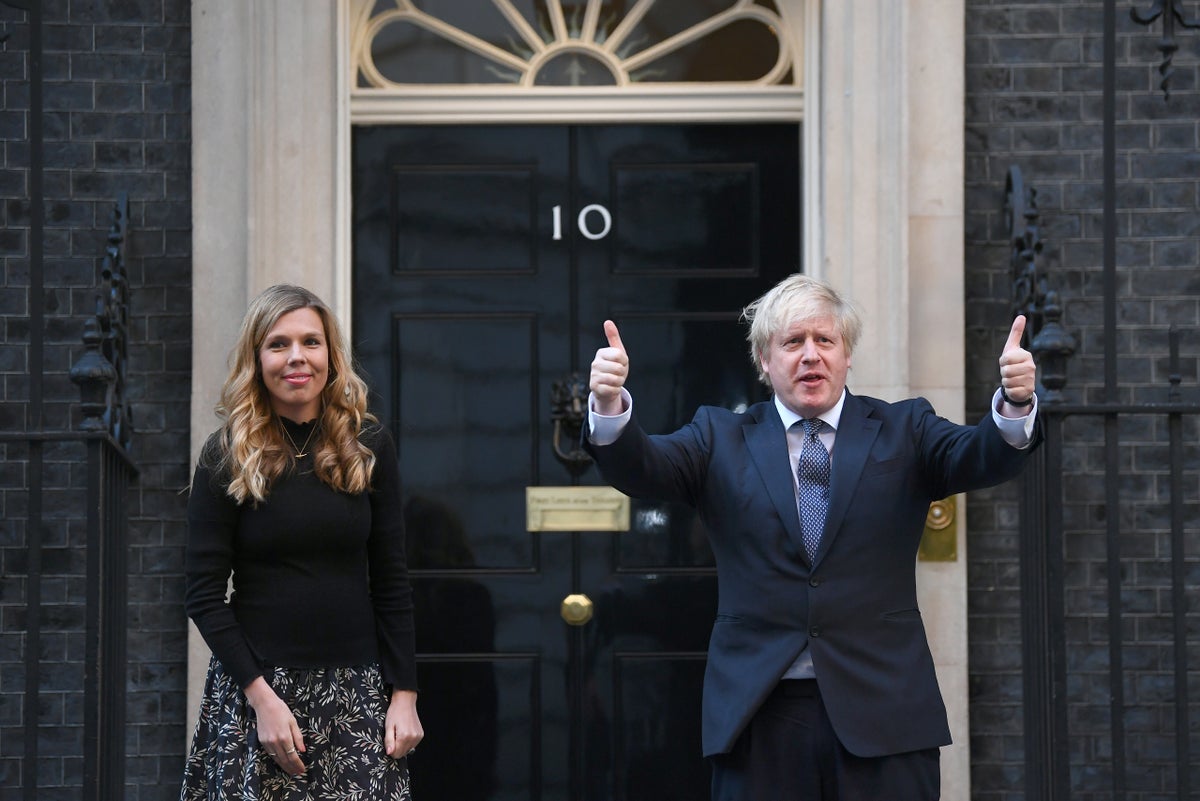
Boris Johnson has bowed to cabinet pressure and promised no major policy shifts in his dying days in office, after Tory alarm at his two-month caretaker period.
He pledged that “major changes of direction” – including tax cuts – should be left to his successor, even as he rejected demands to leave No 10 immediately.
Within minutes of Mr Johnson confirming he will eventually step down, concern grew over what Dominic Cummings warned could be “carnage” to come.
Sir John Major led demands for him to be forced out to avoid further damage to the country after what some Tory MPs called a Trump-style attempt to cling to power.
In a Downing Street speech criticised for a lack of humility or apology, Mr Johnson vowed to stay in power “until a new leader is in place”, which is likely to be early September.
But at a cabinet meeting later on Thursday, he abandoned hopes of ripping up policy, including by slashing income tax in the wake of Rishi Sunak’s resignation as chancellor.
A No 10 readout of the meeting stated he had “made clear the government would not seek to implement new policies or make major changes of direction”.
Instead, it would “focus on delivering the agenda on which the government was elected”, adding Mr Johnson “said major fiscal decisions should be left for the next prime minister”.
One cabinet minister told The Independent that some members had agreed to serve Mr Johnson only after securing “conditions” from the prime minister, in particular on the economy.
“We made clear there were conditions to us joining his cabinet, that he does not try anything in the time he has left. Especially no tax cuts,” the minister said.
Theresa May also warned Mr Johnson to behave, noting she had observed convention by passing only the cross-party net zero climate legislation after announcing her resignation.
“I was still there as prime minister, able to do some things, but, crucially you have to restrict yourself what you do during that period of time for several reasons,” she told an event.
Even with the apparent “conditions” imposed on Mr Johnson, and a new cabinet formed within hours, the government faces a huge struggle to function effectively in the weeks to come.
Dozens of ministerial posts remain unfilled, as the country remains mired in a cost of living crisis and a legal fight with the EU over the Northern Ireland Brexit deal, and as war grinds on in Ukraine.
“The government is not functioning at the moment. Basic things are not happening,” said Louise Haigh, the shadow transport secretary, adding: “They are not able to get the machinery of government running.”
Delivering his resignation speech, Mr Johnson fuelled fears of what he will do in his remaining months in power, as he protested that the party’s decision to remove him was “eccentric”.
“The herd is powerful and when the herd moves, it moves,” he said of Tory MPs – adding he would give his successor “as much support as I can”.
Andrea Jenkyns, an MP and arch-Johnson supporter, told TV cameras as she left Downing Street: “They’ll regret it like they did with Thatcher. This will be a mistake.”
George Freeman, who had quit as science minister earlier, pleaded with his colleagues to recognise Mr Johnson would not “govern for three months in quiet humility and contrition”.
“The prime minister has to accept that it’s over and hand in the seals of office this weekend,” he argued – warning of “insecurity and chaos” if he did not.
Sir John called leaving Mr Johnson in post “unwise and maybe unsustainable”, pointing to his retained power over domestic and foreign policy, and suggesting Dominic Raab be the caretaker.
Keir Starmer vowed to stage a Commons vote to try to force out the prime minister immediately, if Conservative MPs failed to “get rid of him”, saying: “He can’t cling on in this way.”
But it would take several dozen rebel Tories for the vote to succeed – and the party’s newly elected 1922 Committee is not expected to move against him, when it is formed on Monday.
It will set the leadership election timetable, with a rapid first round of voting by Tory MPs to start whittling down around a dozen expected candidates to just two.
The party’s members then pick the next prime minister from that shortlist, after hustings in August.







